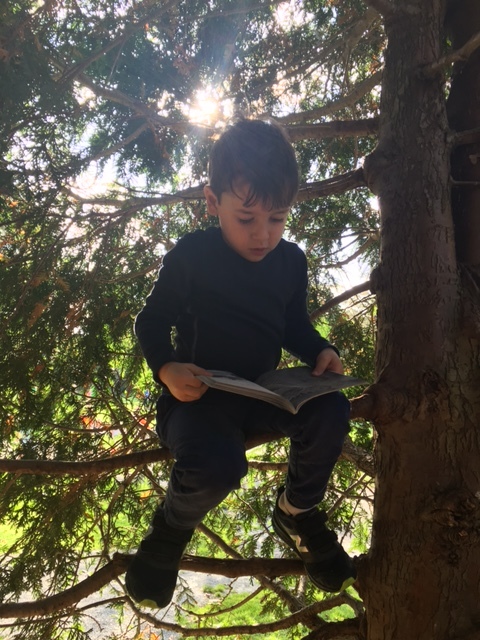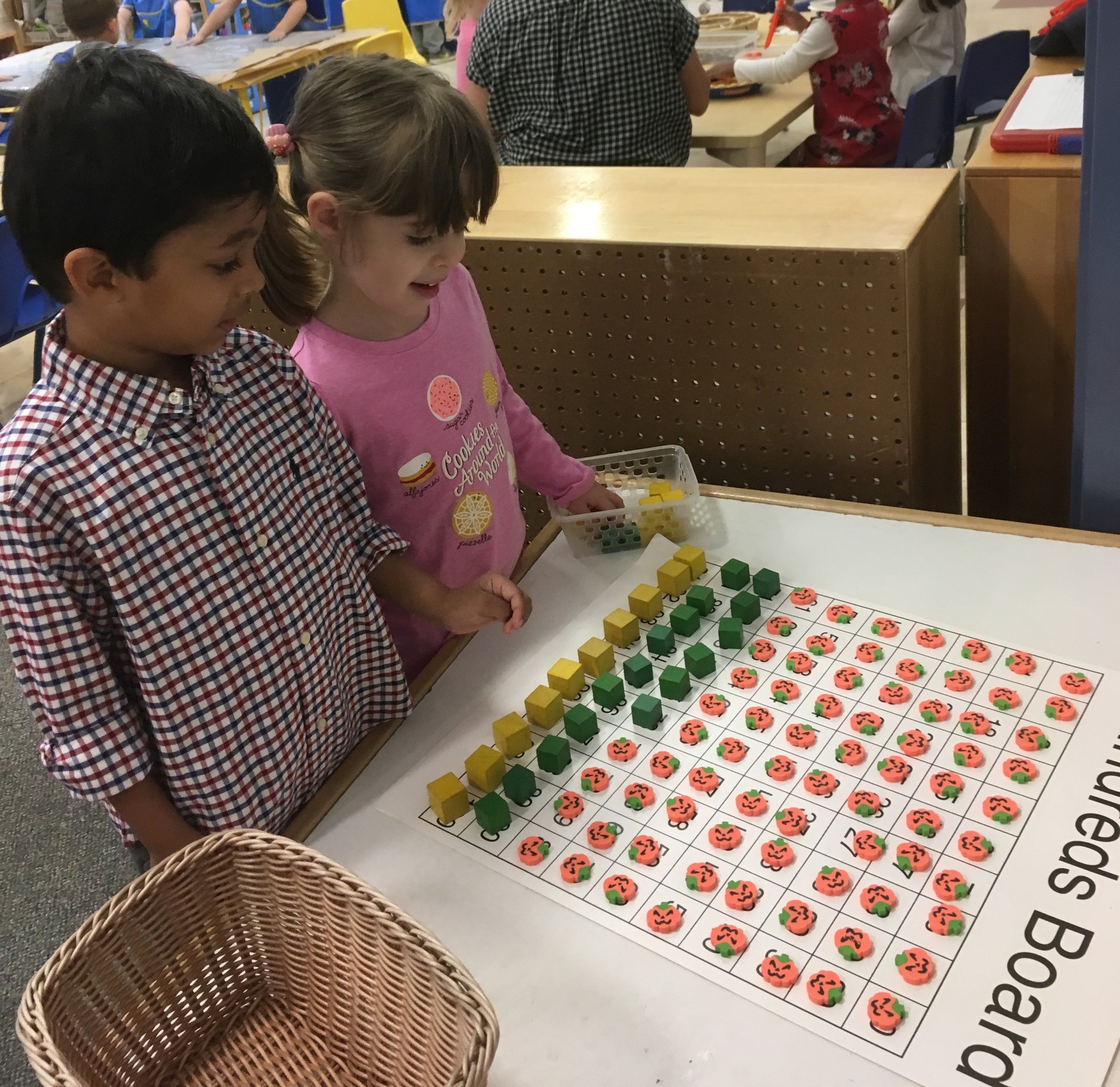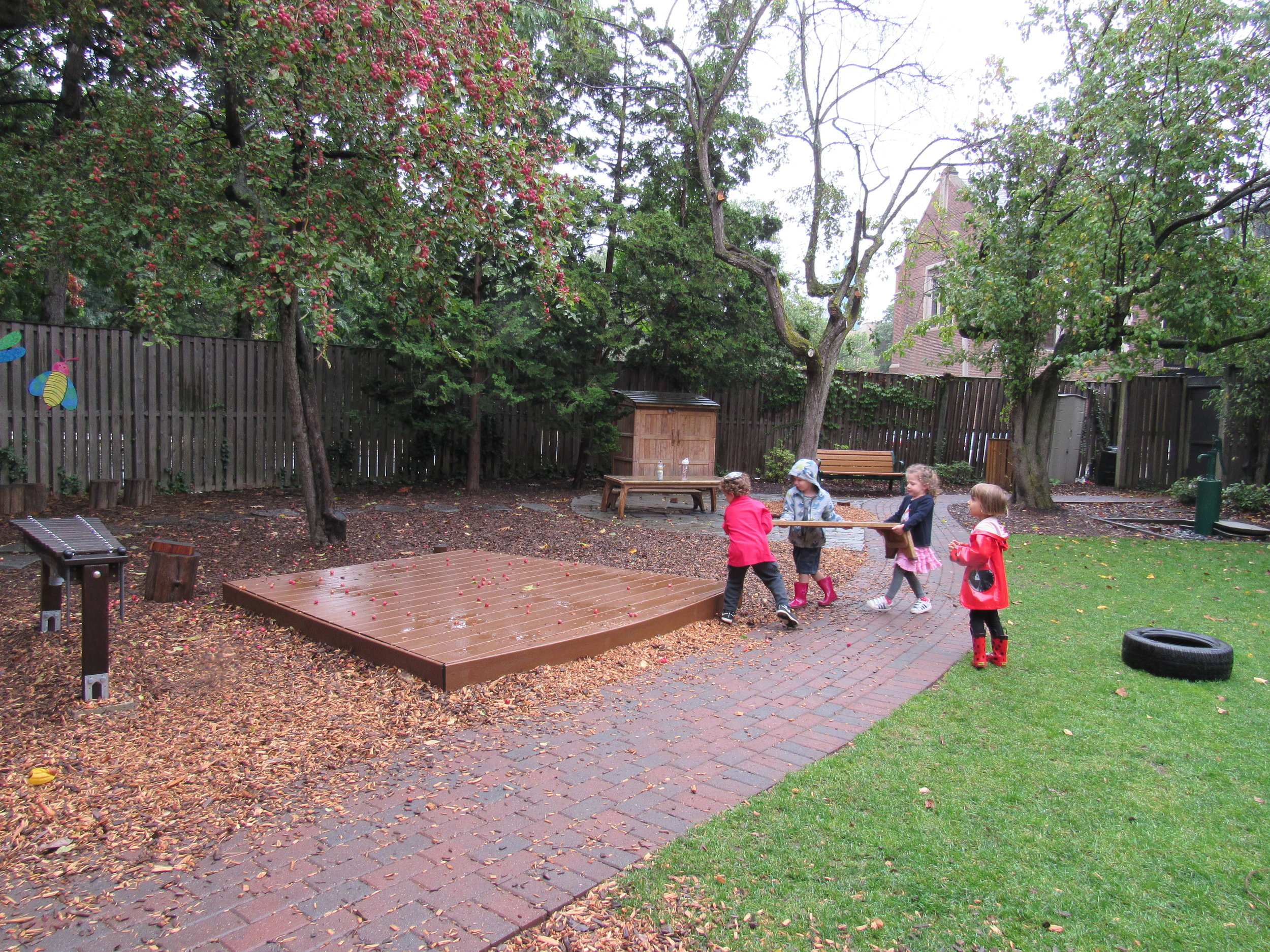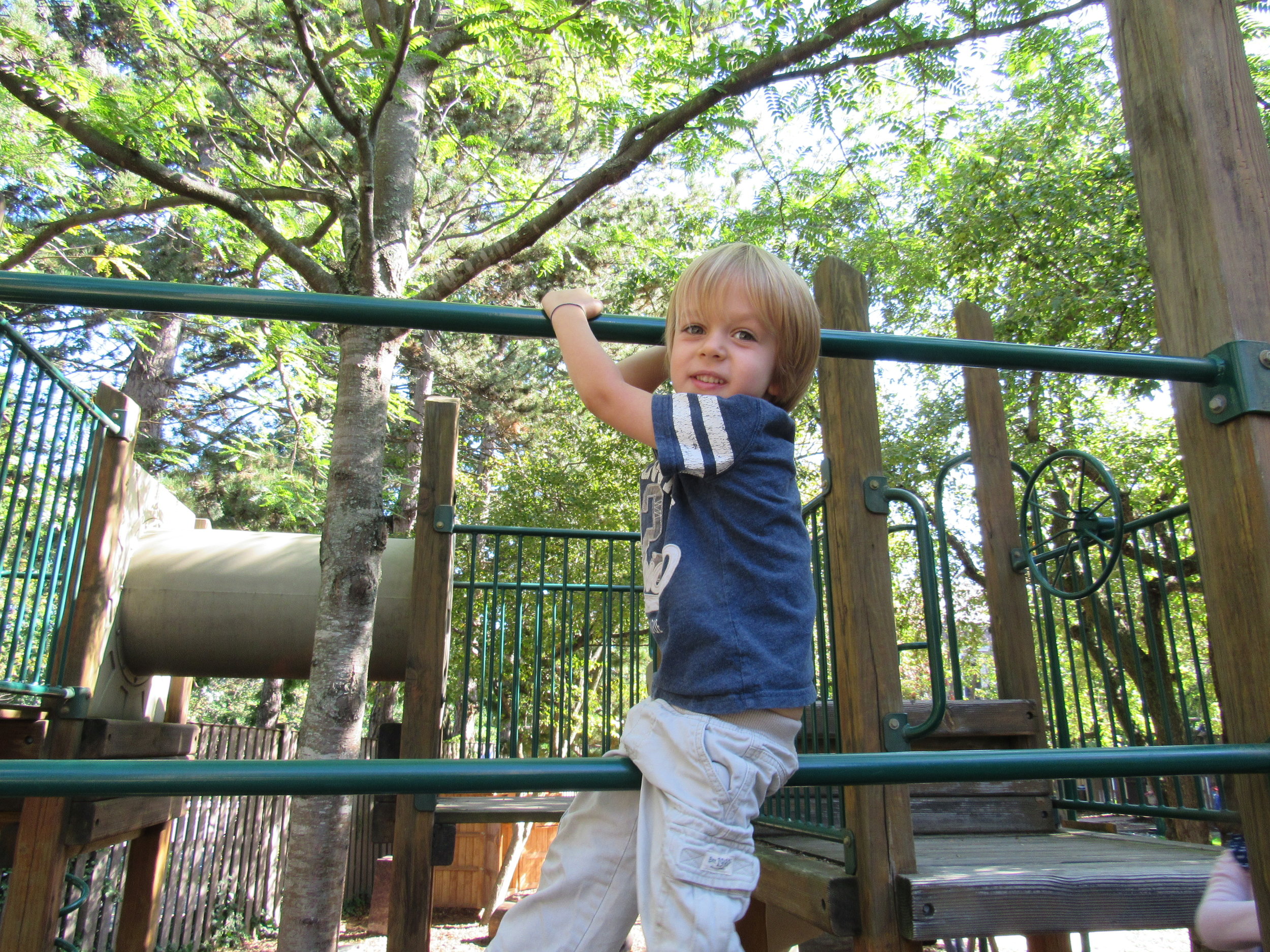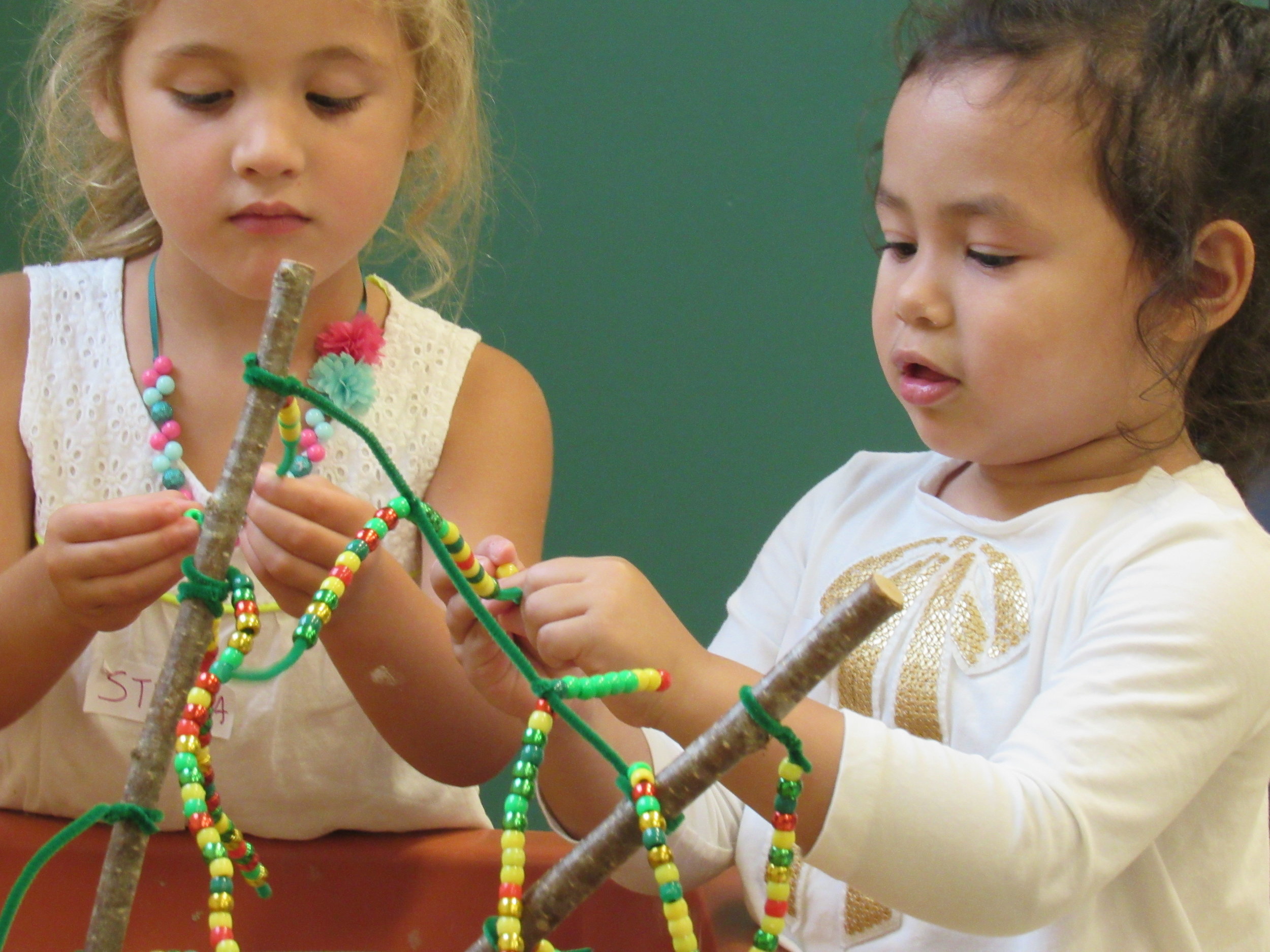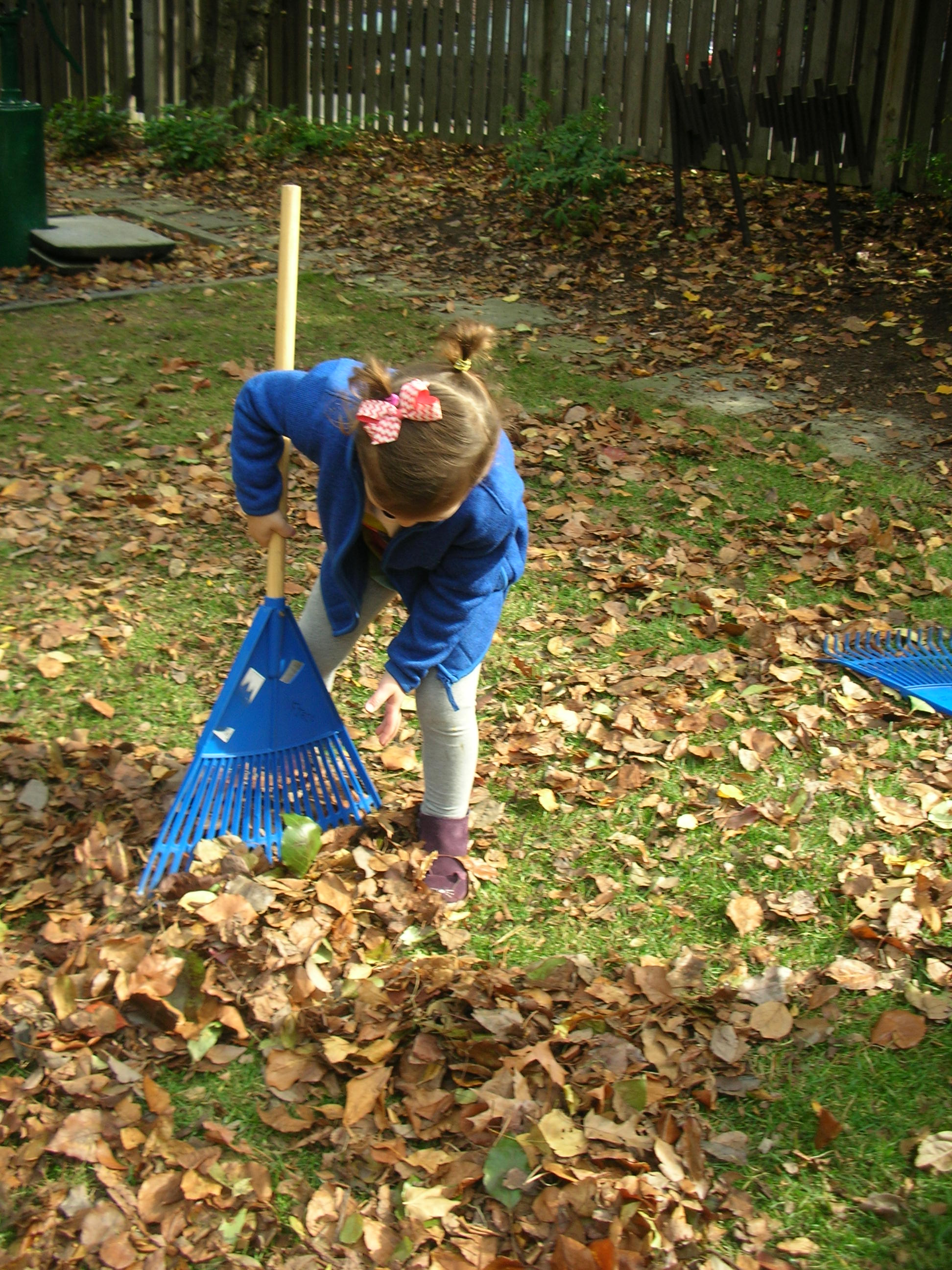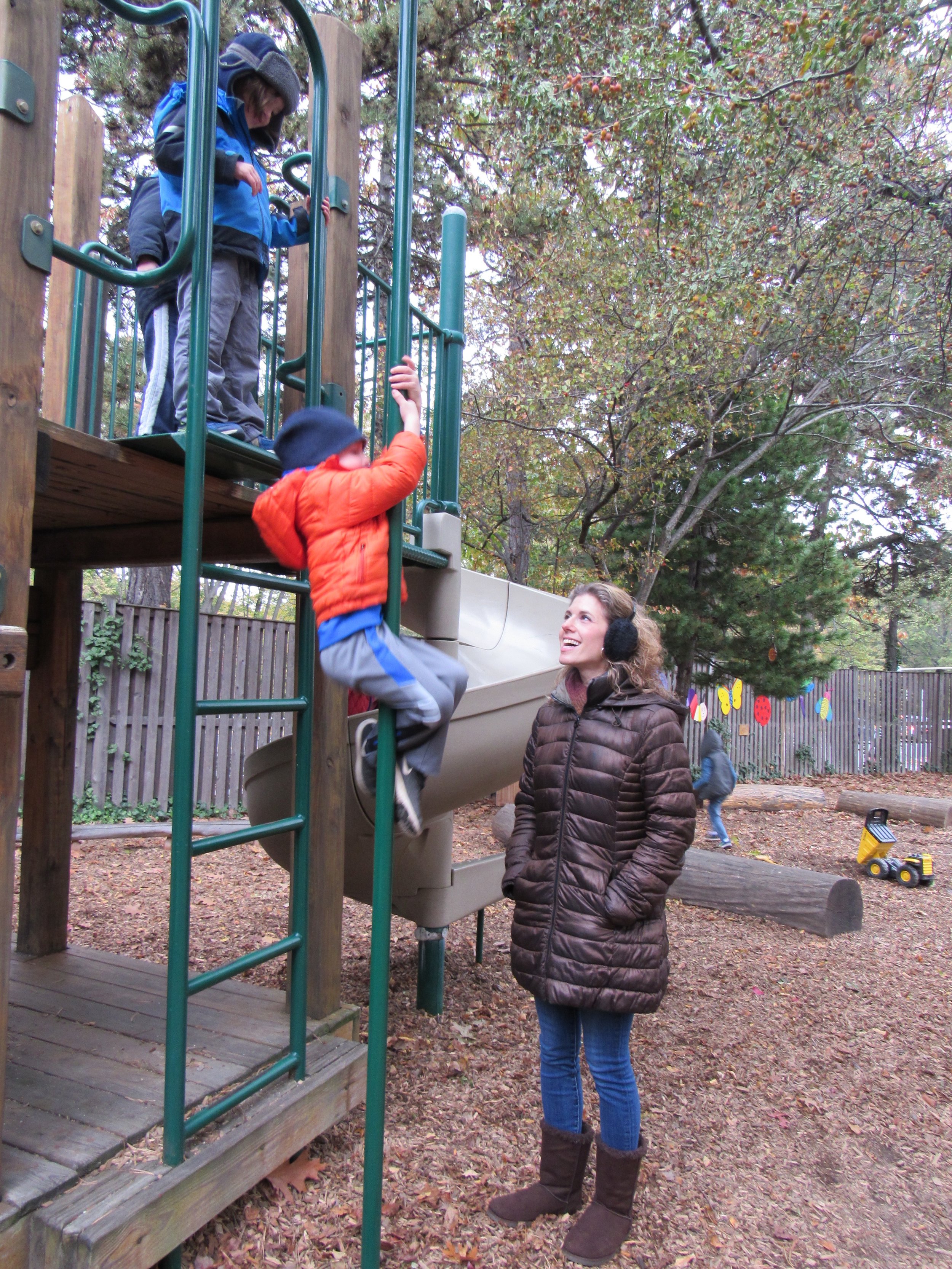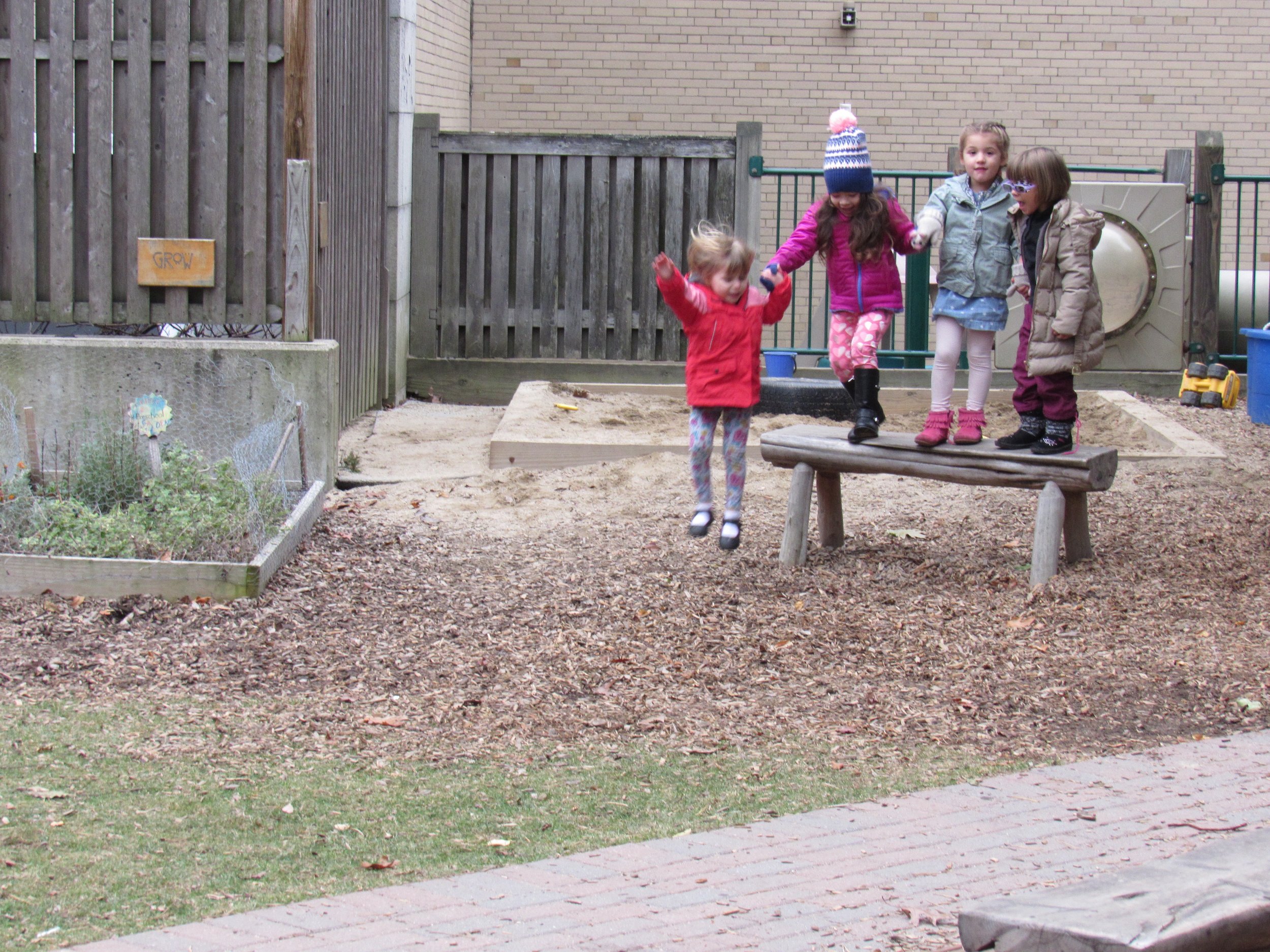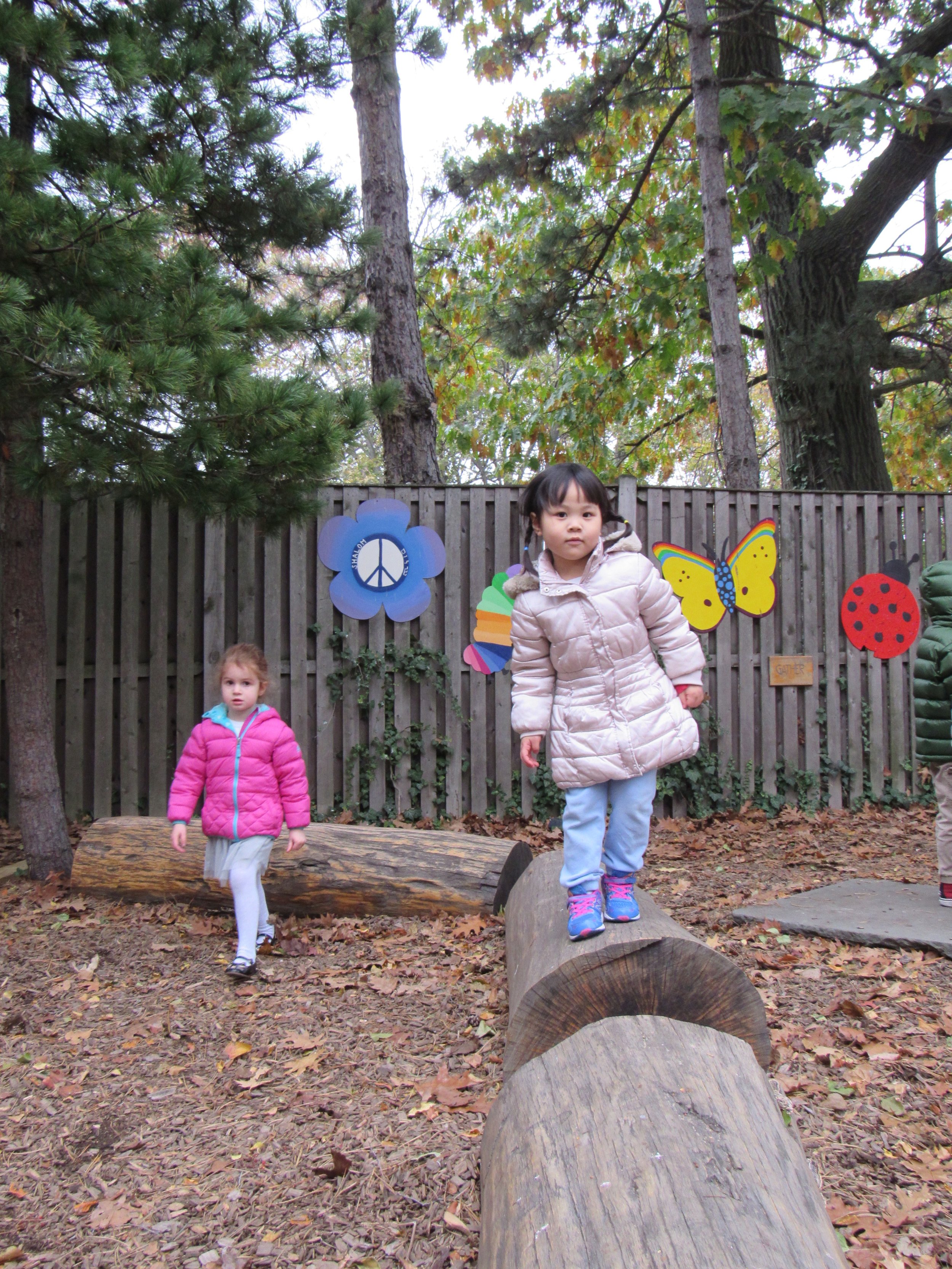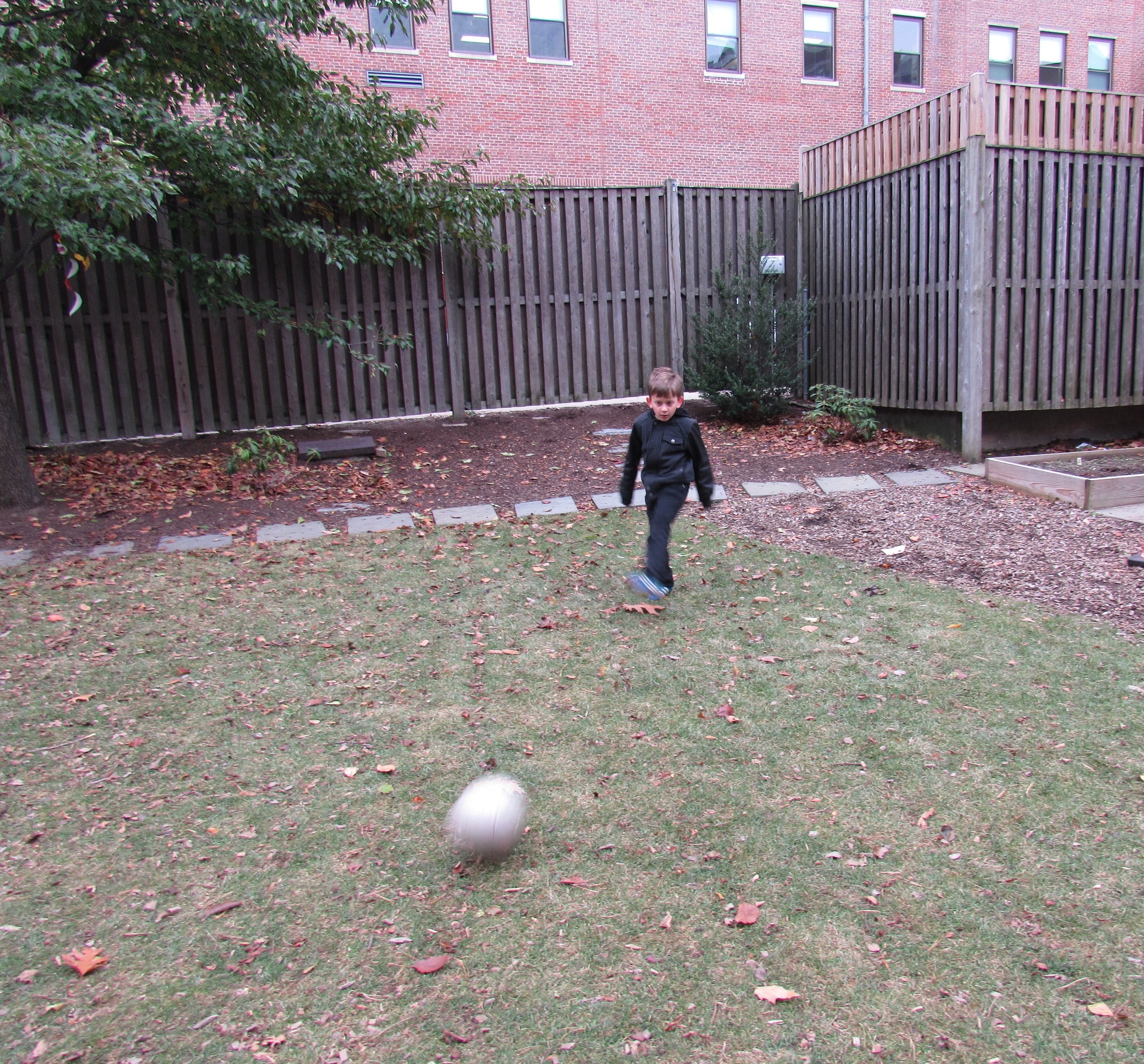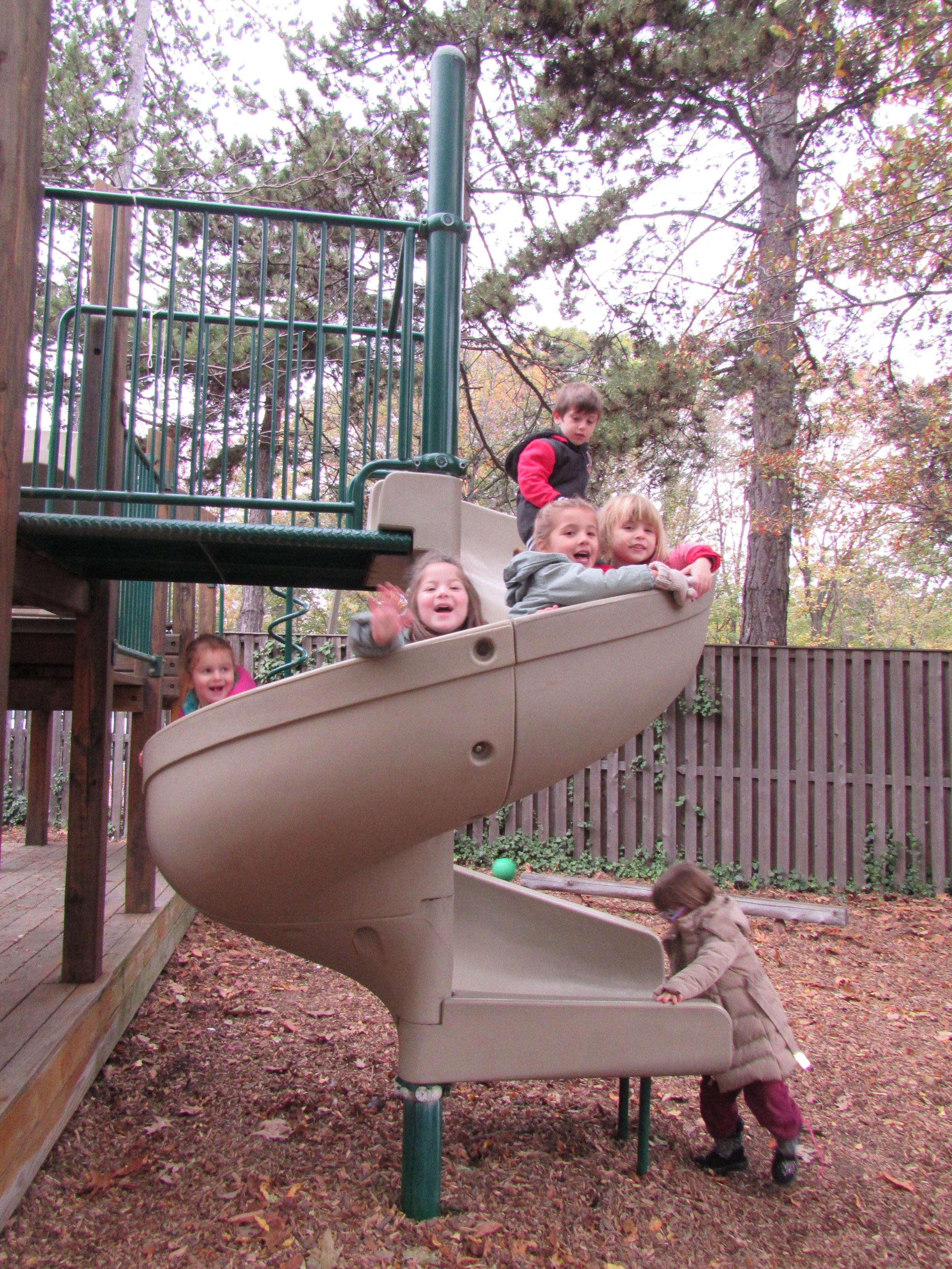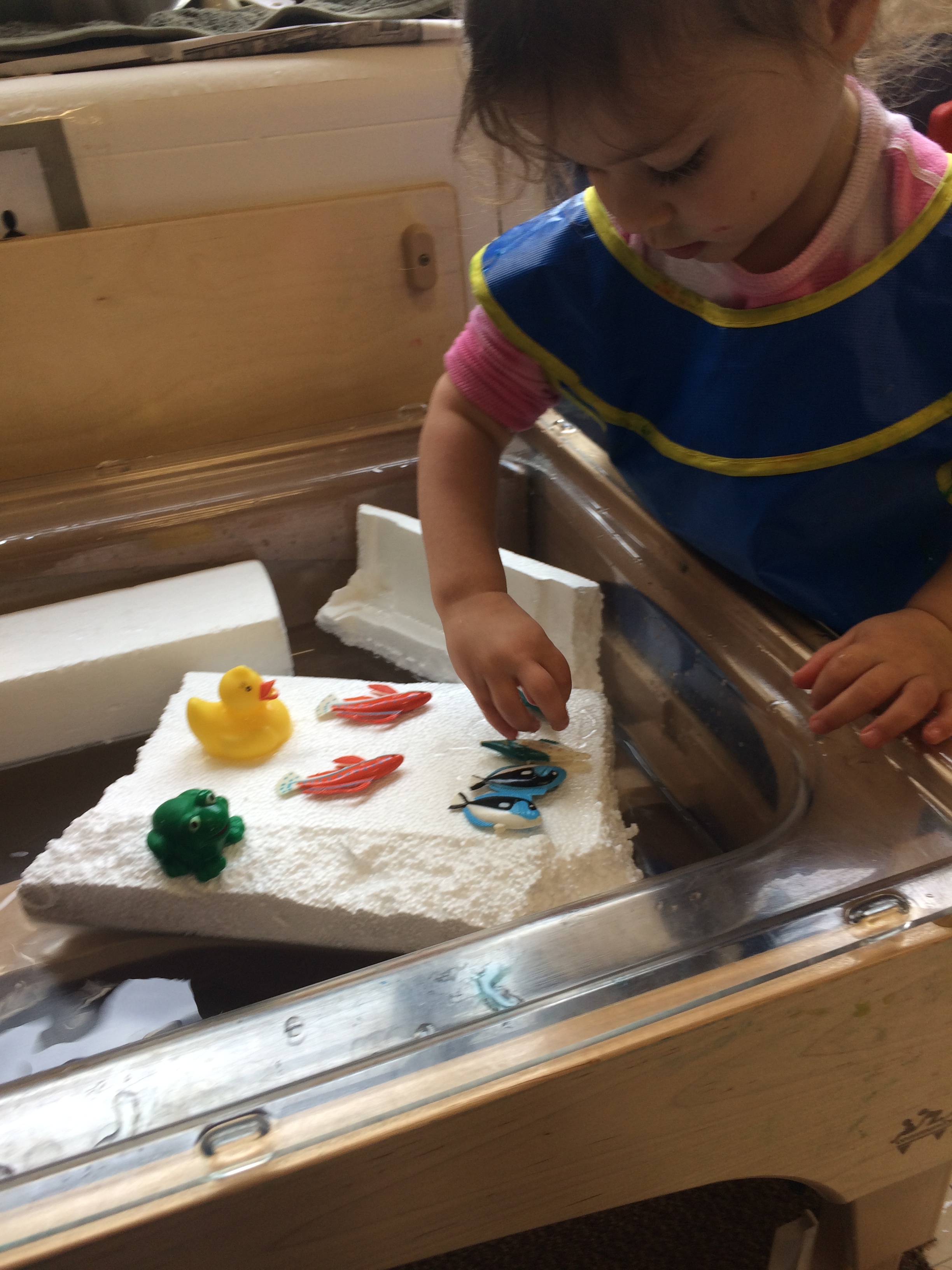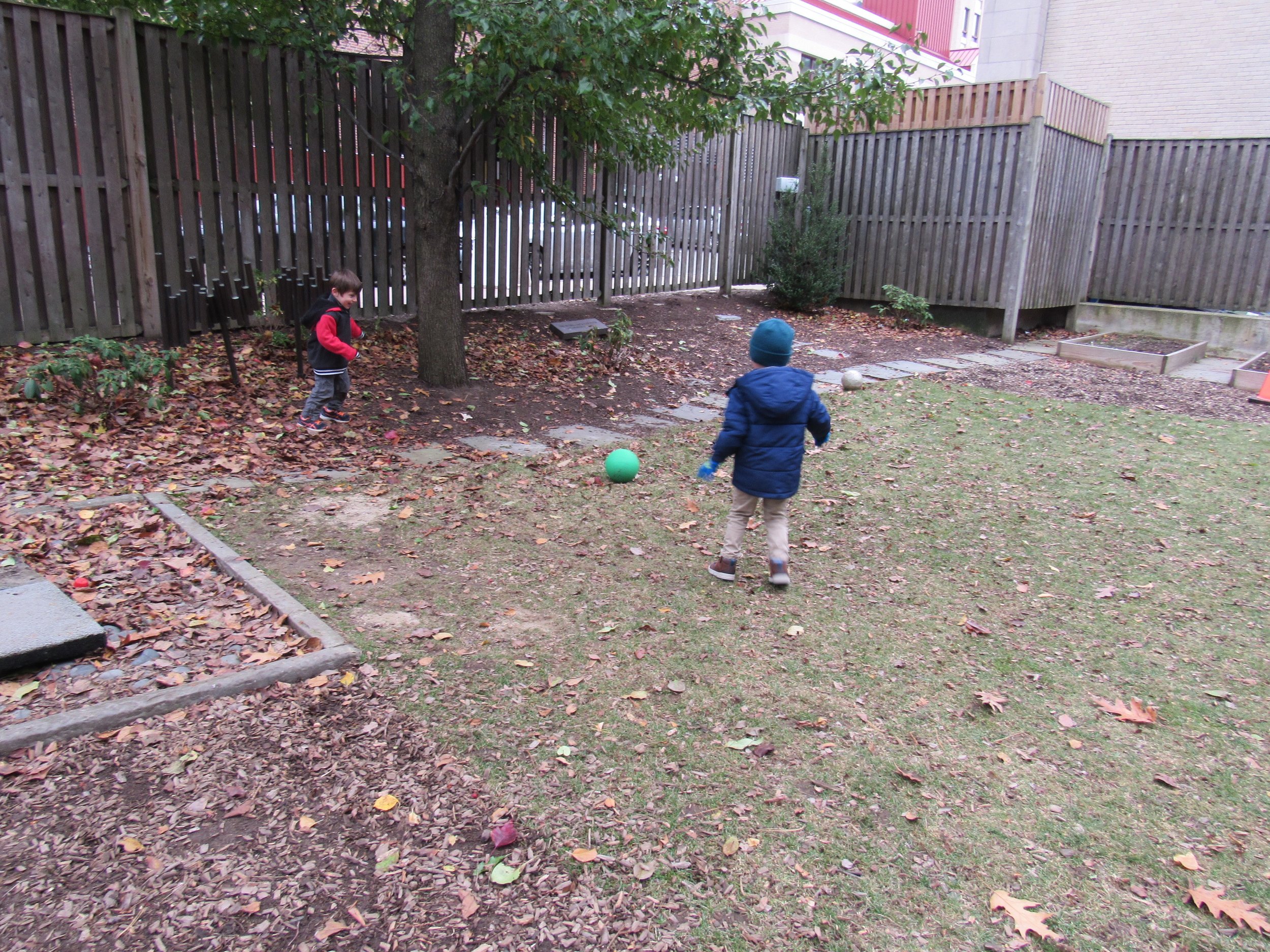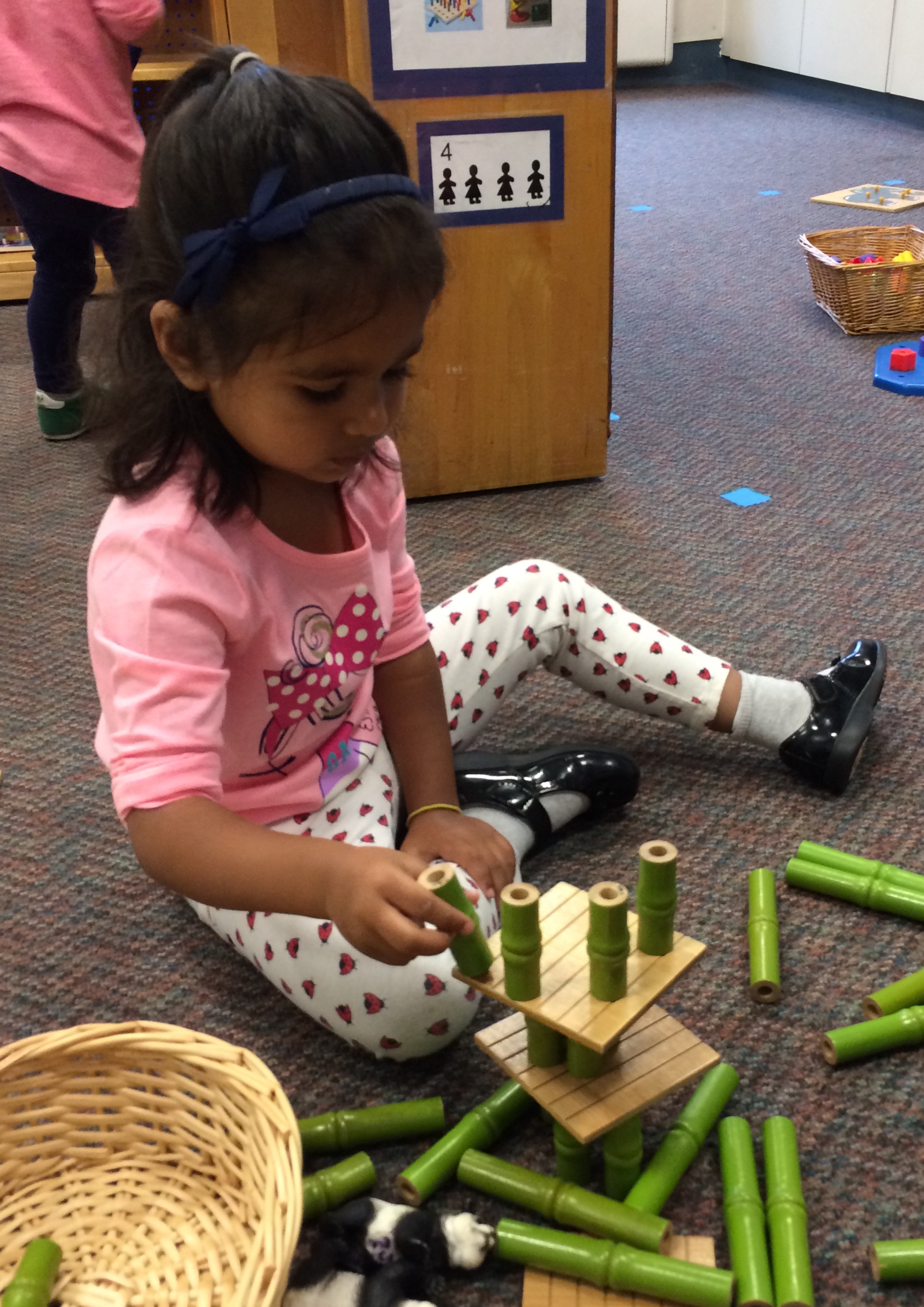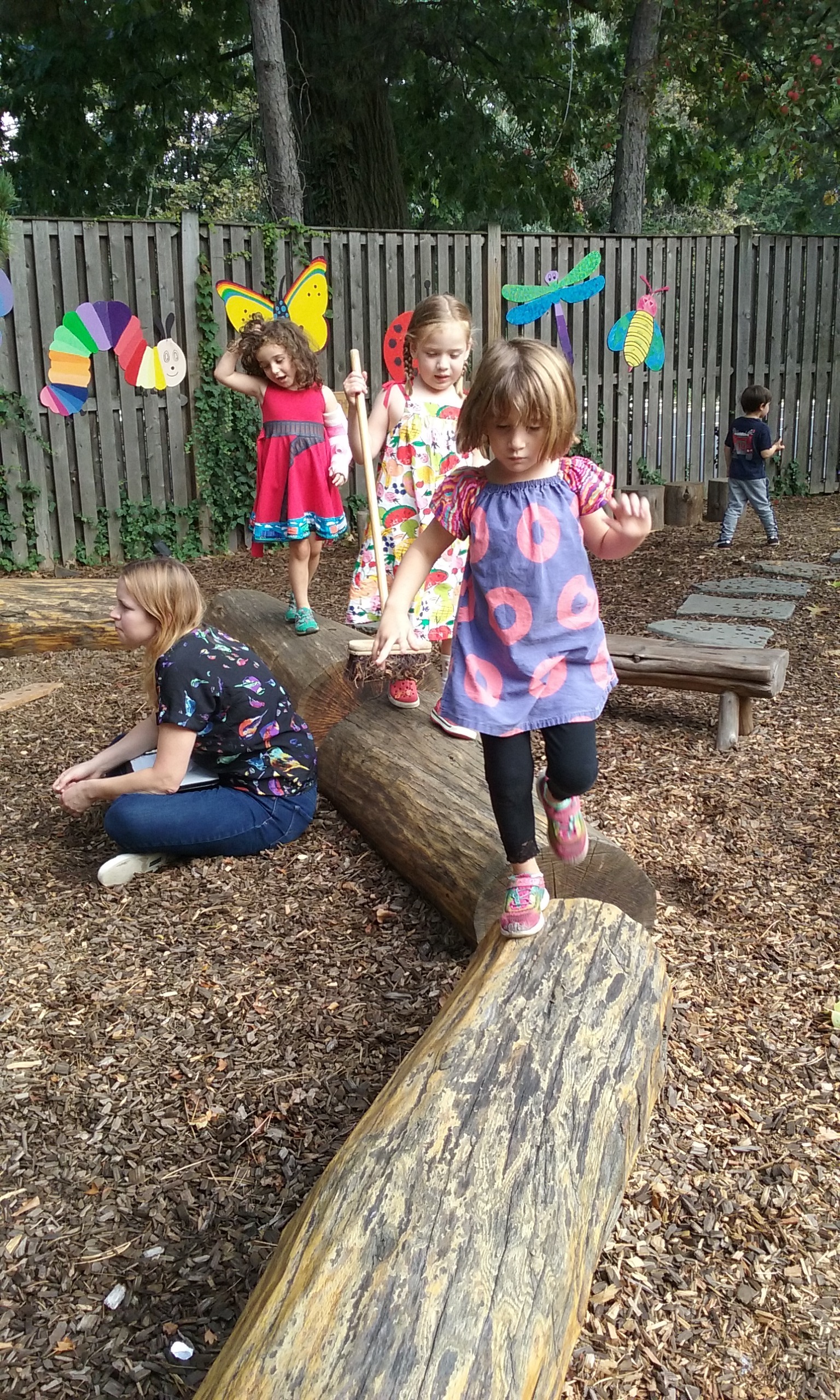Fostering Confidence in Our Children
/All children are born with a certain disposition. Some babies from early on in their development demonstrate the impetus and drive to take risks, to explore, and to reach for items in a manner that is beyond their developmental level. Others are naturally more cautious and show less early confidence. Although we cannot completely change the inherent nature of a child, there is a great deal parents can do to nurture their children with the goal of instilling self-esteem and confidence so that they are comfortable in their own skin and grow up to have a healthy sense of self-worth.
Here are a number of ways parents can promote confidence based on tactics we use with the children at school that you can also employ at home:
- Celebrate the process and effort involved in your child’s accomplishments rather than focusing solely on the finished product. At FJECC, we ask children to tell us what they think about their work and the process used, thus demonstrating that we value their ideas. It is far more important that a child takes pride in his or her own work than receiving praise only for the beauty or excellence of the creation.
- Be authentic when giving feedback to your child. When a young child starts to make marks on a page, as an example, calling this art beautiful is not honest or authentic. We praise our students for bold color choices, interesting patterns, and creative ideas. We ask children to talk about and reflect upon their own work, giving credence and validation for their effort because it is equally, if not more important for children to derive pleasure and pride from their own accomplishments.
- Fostering independence leads to confidence building. Even our very youngest students open their own lunch boxes, dress themselves for outdoor play according to their ability and select activities based upon their interests and of their own choosing. Allow your child to do things on their own. Eating with a beginner utensil, even if quite messy; putting on a piece or two of clothing, even if it takes longer than with your help – all lead to good feelings. Encouraging autonomy in children transmits the message, “I know you can do it!”
- Help your child learn how to successfully handle separating from you. Separation anxiety is a normal part of child development and it is natural to feel ambivalent when a child is experiencing a difficult goodbye. Even if there are tears upon separation, letting children know that they will be fine and the people you have chosen to care for them are there to keep them safe and happy is an important lesson that ultimately fosters self-confidence. Demonstrating trust in their care givers and teachers gives children the message that they will be well cared for. At FJECC, we validate a child’s emotions and feelings by acknowledging that it may be a little difficult to say good-bye to mom, dad or care-giver. We reassure the child that we will take good care of him. The underlying message conveyed is that we believe in their ability to handle the situation and that they will be okay.
I am often asked by parents, “How do I instill confidence in my child?” The suggestions above are but a few that may prove to be helpful. In the next section, I will touch upon another facet to consider.
Encouraging Risk Taking and Independence as a Way of Instilling Confidence
- Allow your child to take some risks. There is not one of us who learned how to walk, ride a bicycle, or play on a climbing structure without a fall resulting in some scrapes and bruises. Of course we want to prevent serious harm, but the typical injuries children experience while exploring are important learning lessons. When a child takes a tumble here at school, we first comfort them and then say, “You will be okay! You can do it!” Letting your child know that she will be fine demonstrates that you have confidence in her ability. Hovering and preventing them from exploring and experimenting brings about caution and fear. Fearful children tend to hold back and are afraid to try new things.
- You don’t have to entertain your children. Children ought to have a period of time when they can play independently. One’s age and stage of development will obviously dictate the appropriate amount of constructive alone time. When children have the opportunity to work and play independently without an adult by their side, important lessons are gained about one’s ability and self worth.
- Empower your child to make decisions for himself whenever possible and honor those decisions. At FJECC, we treat each child as a “can-do” kid. They decide which materials are placed in our frequently changing dramatic play area and what topics of study they are interested in learning about. We empower our students to take control of situations whenever possible, treating them as knowing and capable individuals so they learn to believe in themselves. On the other hand, when the chance to make independent decisions is not offered, children learn that they cannot be trusted, fostering dependence. Empowerment rests upon the parents’ encouragement in enabling their child to try, to take risks, to decide for themselves; all leading to trust in one’s abilities and judgment!
While risk-taking is important, we are NOT advocating that children be free to do as they please. Risk-taking should be allowed within defined parameters. It is still critical to set expectations/rules and be consistent. At FJECC, we make classroom expectations clear at the beginning of the school year. Young children thrive when they know the routines and what their school day will look like. We prepare our students for changes that will take place in advance whenever possible. It is important that children know what to expect and that they can depend upon you to follow through. It may feel easier to let something slide “just this once,” but respecting and following the rules you have established gives children a sense of comfort. Be assured that children need and benefit from the guidelines their adults establish for them, which help them feel well taken care of and secure.
At our center, a great deal of effort is expended toward fostering independence; be it in validating children’s thinking, decision making or problem solving. We help children to assert themselves in appropriate and acceptable ways. When an alteration takes place, we encourage children to let their peers know through discussion that the behavior is not okay. A myriad of opportunities are presented for our students to gain mastery in many areas of development at their own pace. When our students offer suggestions, we act upon them providing that safety is not an issue. By respecting a child’s thinking and choices whenever possible, individual dignity, self worth and confidence is fostered.
Here’s to raising happy, confident children!
Please enjoy these photos taken at school and home of our students being bold, brave and independent.

